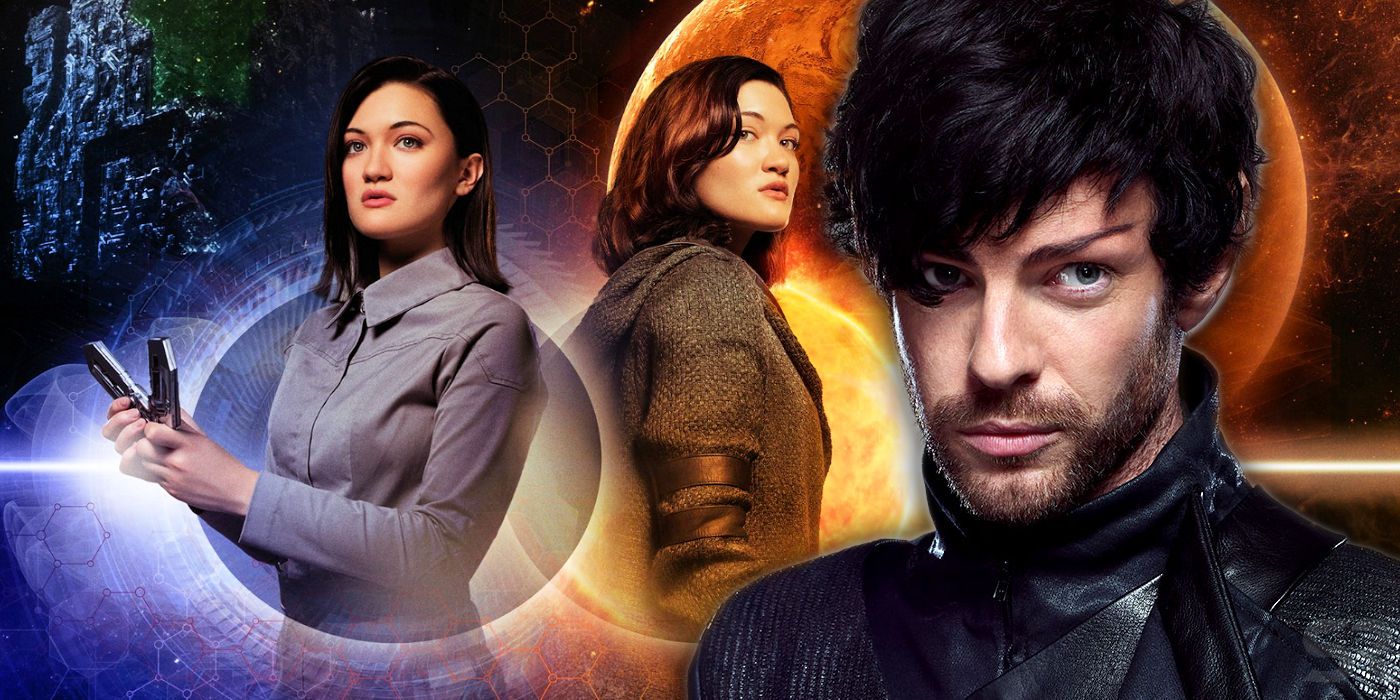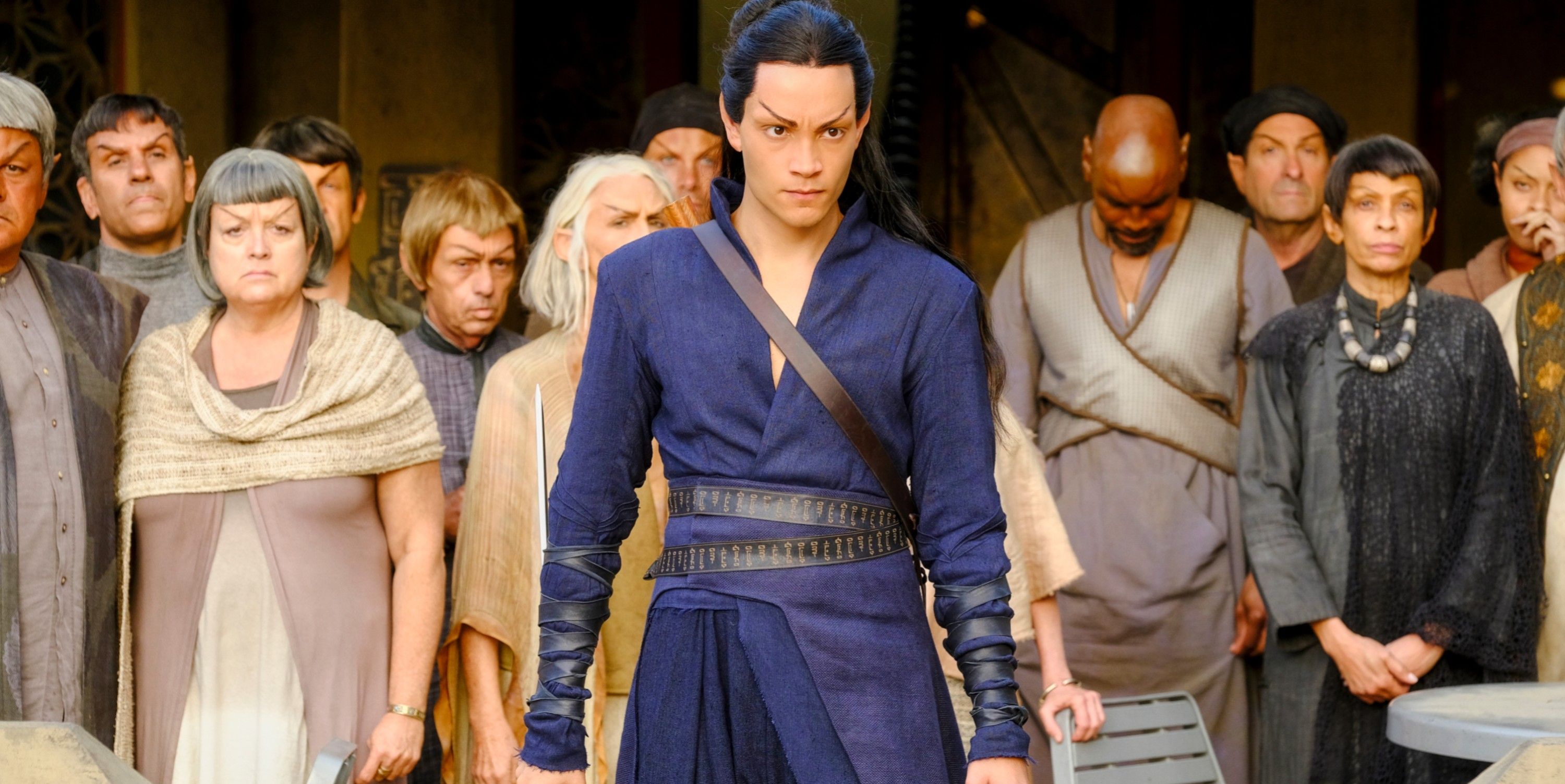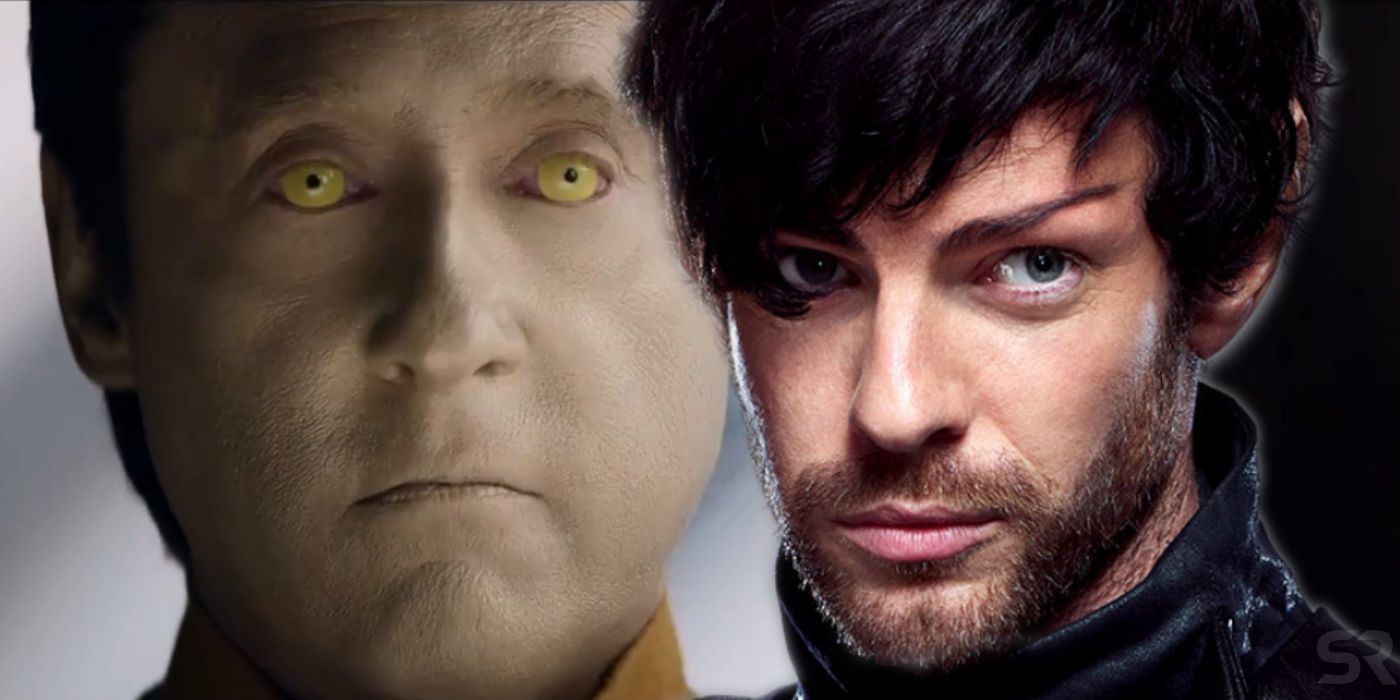
Could the deep secret of the Romulan Empire in Star Trek be that the Romulans themselves are artificial? It would be a jarring change of Star Trek mythos, but there's growing evidence that the Romulans could be the very thing they hate so deeply. One of the oldest alien species in Star Trek lore, the Romulans first appeared in the Star Trek: The Original Series episode "Balance of Terror" and have been a consistent nemesis of the Federation ever since.
Star Trek: Picard has given the Romulans more nuance and attention than ever before, making them more than the mustache twirling villains they've been too often portrayed as over Star Trek's storied history. The likes of Laris and Elnor are the most fully realize, three dimensional Romulans ever put onscreen, while creepy siblings Narek and Rizo are a little more in line with the franchise's classic, treacherous incarnations.
While the show has gone to great lengths to develop three dimensional Romulan characters, it's also deeply interested in Romulan culture, especially in the wake of Romulus' destruction. For some unknown reason, the Zhat Vash - a secret organization within the Tal Shiar, who are essentially the Romulan secret police - are obsessed with destroying artificial life, in particular Soji and Dahj Asha, Lieutenant Commander Data's offspring created by Bruce Maddox of the Daystrom Institute. The Romulans' rejection of artificial life is a new wrinkle, and a deeply important one. What would drive such a technologically advanced race to reject artificial life in all its forms? To understand, we have to take a look at the early history of the Romulans.

The accepted wisdom is that the Romulans began as a sect of Vulcans who rejected the logic based teachings of Surak in the 4th century and departed Vulcan to begin their own civilization on the twin planets of Romulus and Remus. In stark contrast to the peaceful, scholarly Vulcans, the Romulans were conniving, untrusting warriors, known throughout the galaxy for their treachery. The Klingons, in particular, despised them, largely for the attack at Camp Khitomer that killed thousands of Klingons, including Lieutenant Commander Worf's parents.
Yet nobody in the Federation even made visual contact with a Romulan until "Balance of Terror," which took place in the mid-23rd century (that first Romulan was played by Mark Lenard, who also played Spock's father Sarek). Their origins as a Vulcan offshoot had either been covered up or forgotten, as Spock himself was surprised to see a Vulcan-looking commander staring back at him from across space. The explanation of their origins was accepted at face value and never really questioned, despite the massive information gap in their history.
Related: Star Trek: Picard's TOS Easter Egg Homages Kirk Vs. Romulans
There is, however, another possibility. The Vulcans were always far more advanced in technology than humanity - Star Trek: First Contact showed they were exploring the galaxy with warp drive while humanity was still reeling from the fallout of World War III. It's not much of a leap to imagine the Vulcans had dabbled in artificial intelligence long before Noonien Soong cracked the code on Data. What if the Romulans were an artificial race, created by the Vulcans?
It may seem far-fetched, but consider this: Star Trek: Picard has made it clear that it's possible to make androids that are, for all intents and purposes, indistinguishable from humans, as evidenced by Dahj and Soji. If that's a technology the Vulcans had at one time, it's easy to imagine them developing lifelike androids. Those androids could credibly reject an ideology that didn't make sense to them and, assuming they were autonomous, could have chosen to depart Vulcan society. The Vulcans would naturally cover up that kind of mistake, and it would be the genesis of the Romulans' infamous secretive nature. It would also explain why the Borg cube went haywire when it tried to assimilate a Romulan ship - they didn't realize they were trying to assimilate something that was already synthetic.

The obvious analogy here is the Cylons from Star Trek alum Ronald D. Moore's 21st century reboot of Battlestar Galactica. Created by humanity, the robots eventually rose up and went to war with humanity before departing to start their own society, and then eventually returning to exact massive vengeance on their creators.
It seems unlikely that many Romulans would be aware of their cybernetic origins. The Romulans are arrogant to a fault, largely seeing themselves as the superior race of the galaxy. Spock himself even covertly went to Romulus in an attempt to reunify the two races in earnest. Yet it's an almost too perfect explanation of why the Zhat Vash rejects artificial life in all its forms - they're the only Romulans who know the truth of their existence, and if that secret were ever uncovered, it would mean the end of their civilization as they know it, even more so than the destruction of Romulus. The Romulan sense of identity, their sense of pride, is the last thing they have left.
It also works thematically with the duality Star Trek: Picard seems to be so interested in exploring. There were two different android daughters of Data, who himself had an evil twin brother in Lore - not to mention the inferior prototype B-4, currently residing in a drawer at the Daystrom Institute in the wake of the synthetic ban. There's a certain cosmic rhyme to the Romulans, in fact, being a sort of mirror that the Vulcans held up to themselves, only to curdle into a mistrusting, arrogant race.
-
Star Trek: Picard is clearly going to revolve heavily around the Romulans, perhaps even more so than it has so far. The true motivations and interests of the Zhat Vash are still a mystery, as are Narek's plans for poor unsuspecting Soji on the Borg Artifact. It seems likely Picard and his crew are heading for a showdown with the Zhat Vash and Tal Shiar; it's simply a matter of what will ultimately be revealed about them. There's still the open question of the Romulans' role in the synth attack that resulted in the massacre on Mars and Utopia Planitia, if there is one.
The Romulans have always been one of Star Trek's more mysterious villains, almost by default. They've been used relatively sparingly over the years, and when they do show up they tend to be fairly shallow characters. Star Trek: Picard looks to change that in a big way, both through smaller character moments like Laris and Zheban tending to Picard at his family vineyard, or perhaps in potentially controversial, cataclysmic ways. Will the Romulans turn out to be the synthetic life they so deeply loathe? Only time will tell.
from ScreenRant - Feed https://ift.tt/2SHvr4L


0 Comments